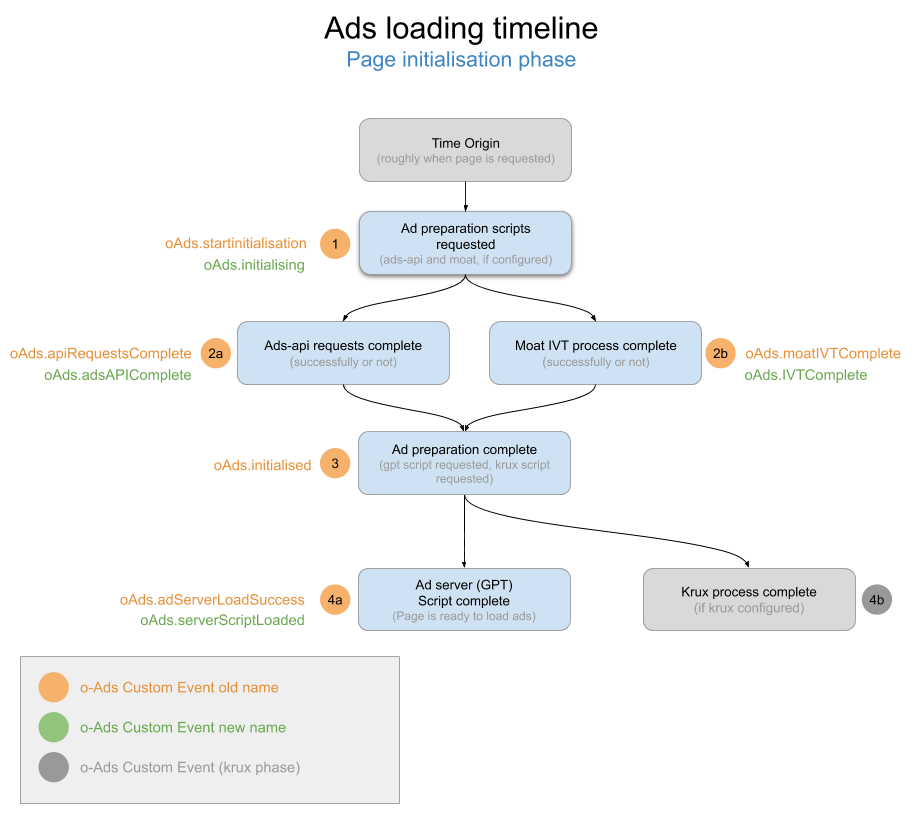
Security News
UK Officials Consider Banning Ransomware Payments from Public Entities
The UK is proposing a bold ban on ransomware payments by public entities to disrupt cybercrime, protect critical services, and lead global cybersecurity efforts.
@financial-times/o-ads
Advanced tools
This is an Origami module that enables advertising from [Google's DFP Ad Server (part of Ad Manager)](https://support.google.com/admanager/answer/6022000?hl=en), and provides customised demographic, behavioural (via [Krux](http://www.krux.com/)), and cont
This is an Origami module that enables advertising from Google's DFP Ad Server (part of Ad Manager), and provides customised demographic, behavioural (via Krux), and contextual (via Admantx) targeting.
For basic use, a DFP (DoubleClick for Publishers) account with Google is required. Each targeting/tracking supplier will require their own configuration and setup.
Demos for all ads currently served across ft.com are available in the Origami Registry.
Includes detailed installation and set-up instructions, along with details about the module.
To build the documentation locally, from the docs directory, run:
bundle install
jekyll build
It will generate a _site directory where generated site will be compiled
You can then run the jekyll local server by executing jekyll serve.
obt install.obt demo.npm run demo-serverSee the test documentation
You will need a GITHUB_TOKEN environment variable with access to the repository in your .env file
Get a github token with "repo" access and make it accessible as an environment variable.
Run npm run release (patch|minor|major|x.y.z) in master then follow the interactive steps.
This will bump version numbers in the source and commit them, push to github and create a new release.
The command uses release-it under the hood as well as genversion to automatically bump version numbers in the source.
This release removes integration with Krux for behavioural targeting. The origami component o-permutive can be used for behavioural tracking instead.
This release introduces the following changes:
o-ads is now recording a performance mark for every event that it dispatches. The performance mark will have the same name as the event that originated it plus, in some cases, a suffix that helps determine the circumstances that triggered the event. This is all being used internally by o-ads to provide new metrics functionality.
o-ads exposes a new setupMetrics method that simplifies obtaining performance metrics. setupMetrics accepts two parameters:
| Old event name | New event name |
|---|---|
| startInitialisation | initialising |
| moatIVTcomplete | IVTComplete |
| apiRequestsComplete | adsAPIComplete |
| adServerLoadSuccess | serverScriptLoaded |
| ready | slotReady |
| render | slotCanRender |
| gptDisplay | slotGoRender |
| rendered | slotRenderStart |
| complete | slotExpand |
| adIframeLoaded | slotRenderEnded |
A guide can to the new names can also be found in this two diagrams:


As of version 11, o-ads has been updated to use ES modules. Unfortunately, this means it is not backwards compatible with CJS modules and clients cannot require('o-ads') anymore.
import oAds from 'o-ads'collapseEmpty attribute: 'before', 'after', 'never' and defaults to 'never''before', 'after', 'never' instead of true and false previouslyconfig.collapseEmpty instead of config.gpt.collapseEmpty previouslyFTConsent and specify which consent the user has given as part of the value like this: behaviouraladsOnsite:on,programmaticadsOnsite:ondisableConsentCookie option.FAQs
This package contains the core functionality used by the FT in providing ads across all of its sites. This includes ft.com, howtospendit.com, ftadviser.com and other specialist titles.
The npm package @financial-times/o-ads receives a total of 49 weekly downloads. As such, @financial-times/o-ads popularity was classified as not popular.
We found that @financial-times/o-ads demonstrated a not healthy version release cadence and project activity because the last version was released a year ago. It has 18 open source maintainers collaborating on the project.
Did you know?

Socket for GitHub automatically highlights issues in each pull request and monitors the health of all your open source dependencies. Discover the contents of your packages and block harmful activity before you install or update your dependencies.

Security News
The UK is proposing a bold ban on ransomware payments by public entities to disrupt cybercrime, protect critical services, and lead global cybersecurity efforts.

Security News
Snyk's use of malicious npm packages for research raises ethical concerns, highlighting risks in public deployment, data exfiltration, and unauthorized testing.

Research
Security News
Socket researchers found several malicious npm packages typosquatting Chalk and Chokidar, targeting Node.js developers with kill switches and data theft.